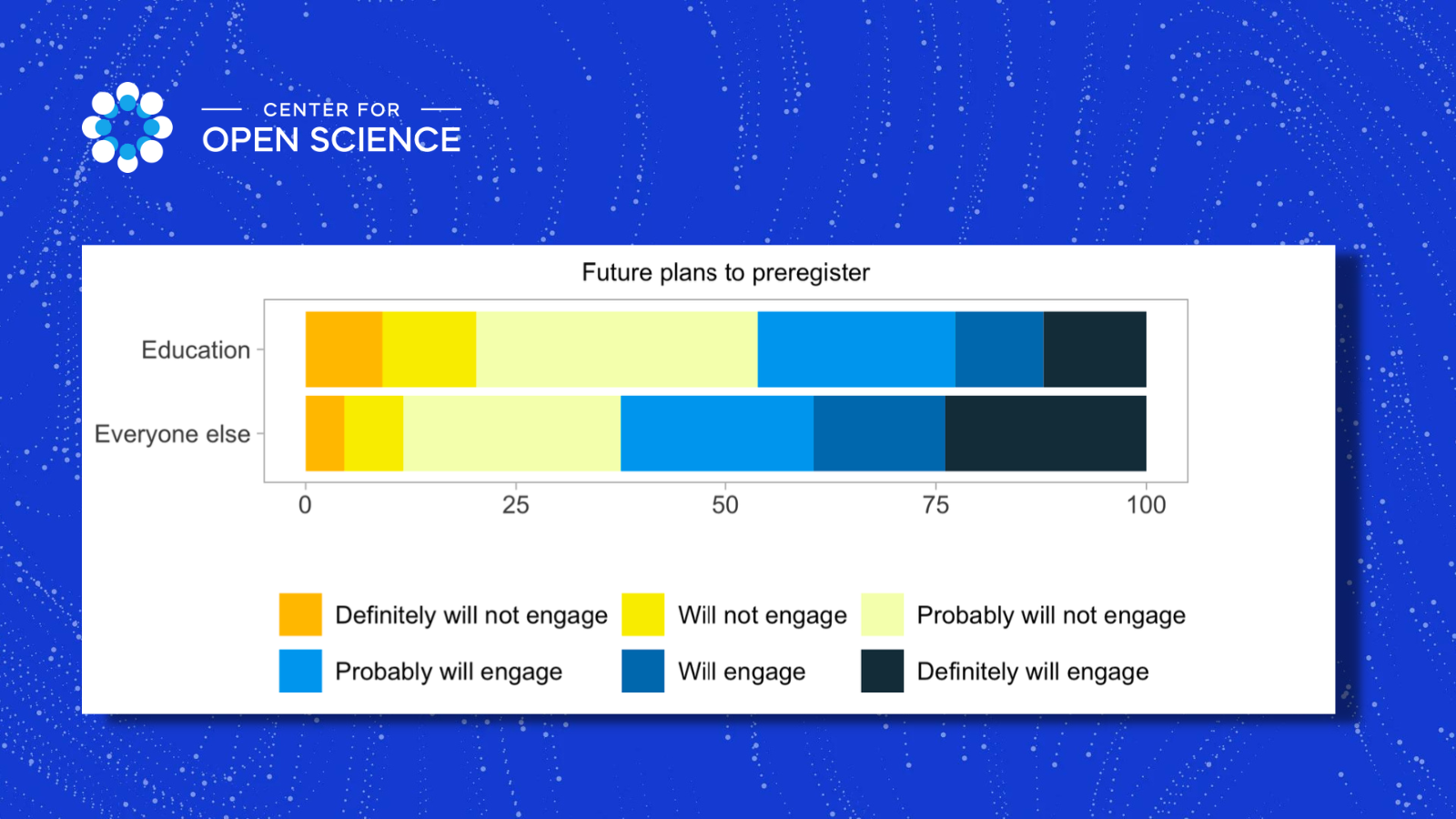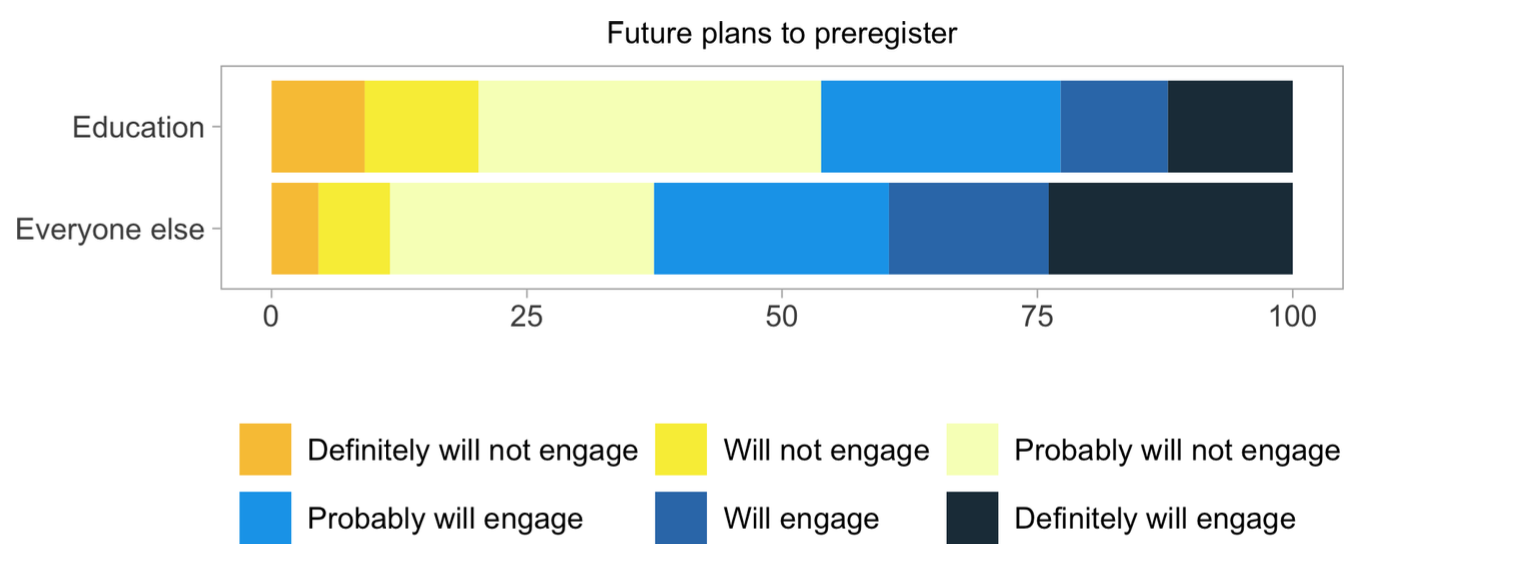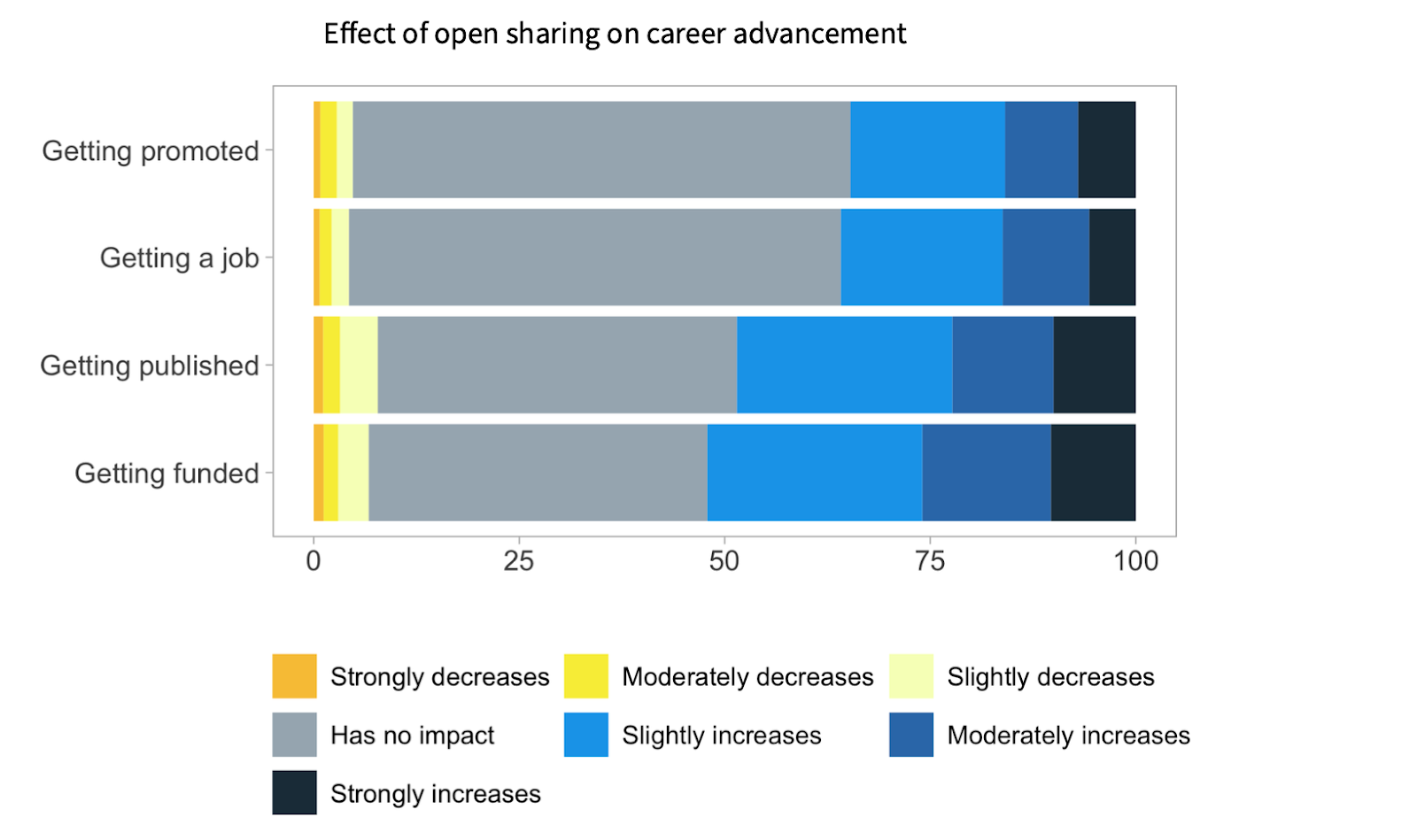
Open scholarship practices, which involve sharing data, materials, preregistering studies, replication, sharing preprints, and reporting null results, have gained significant attention in the academic community. The Open Scholarship Survey (OSS) has completed two waves of data collection between Fall 2020 and Summer 2022 to gauge attitudes, behaviors, and perceptions of education researchers regarding these practices. Here, we summarize findings for education researchers, but please see the full report for additional details.
The first two waves of the OSS reveal that education researchers generally exhibit positive attitudes toward open scholarship practices. Over 75% of respondents support replication and reporting null results, and nearly 70% or more express support for data and materials sharing. 55% of respondents support sharing preprints. Although education researchers trail slightly behind their peers from the broader OSS sample, their support remains comparable, except for preregistration, where they exhibit a wider margin of lag, reportedly due to lack of familiarity with the practice.
While education researchers generally show alignment with other fields in their attitudes, there is a notable gap when it comes to reported behaviors. For instance, only 34% of education respondents have engaged in replication, compared to 51% among other OSS participants. Similarly, 22% have recently shared data, in contrast to 41% in the broader sample. Furthermore, education researchers indicate a lower likelihood of performing these practices in the future, with only 46% planning to preregister and 74% intending to report null results, compared to 63% and 84% in the broader sample, respectively (see below).

The findings of the survey suggest that there are opportunities for increased adoption of open scholarship practices within the education research community. A significant number of education researchers express support for these practices but engage in them in fewer than 50% of their scholarly works. The majority of education respondents (over 70%) fall into this category for replication and reporting null results. Bridging the attitude/behavior gap for these researchers could lead to greater adoption of open scholarship practices across the field.
The survey also highlights specific challenges that hinder the adoption of open scholarship practices. Lack of familiarity is cited by 53% of the education sample as a reason for not preregistering, while ~40% mention the absence of a suitable repository for data and materials sharing. For replication, respondents point to the nature of their research (45%) and the perceived irrelevance of replication to their work (41%) as the main obstacles. Additionally, the discussion of career incentives in the full report [LINK] reveals that education researchers do not consider open scholarship as a path to career advancement, with over half of the respondents stating that sharing data, code, and materials has no impact on job prospects or promotions (see below).

The Open Scholarship Survey sheds light on the attitudes, behaviors, and perceptions of education researchers regarding open scholarship practices. Although the education community demonstrates broad support for these practices, there remains a need to bridge the gap between attitudes and behaviors. Reducing barriers to open scholarship practices by improving education, policies, resources, and career incentives can pave the way to increasing the transparency and rigor of education research. By embracing open scholarship, researchers can foster transparency, collaboration, and innovation in the field, leading to more robust and impactful research outcomes.
You can read the full OSS report on OSF.

6218 Georgia Avenue NW, Suite #1, Unit 3189
Washington, DC 20011
Email: contact@cos.io

Unless otherwise noted, this site is licensed under a Creative Commons Attribution 4.0 International (CC BY 4.0) License.
Responsible stewards of your support
COS has earned top recognition from Charity Navigator and Candid (formerly GuideStar) for our financial transparency and accountability to our mission. COS and the OSF were also awarded SOC2 accreditation in 2023 after an independent assessment of our security and procedures by the American Institute of CPAs (AICPA).
We invite all of our sponsors, partners, and members of the community to learn more about how our organization operates, our impact, our financial performance, and our nonprofit status.